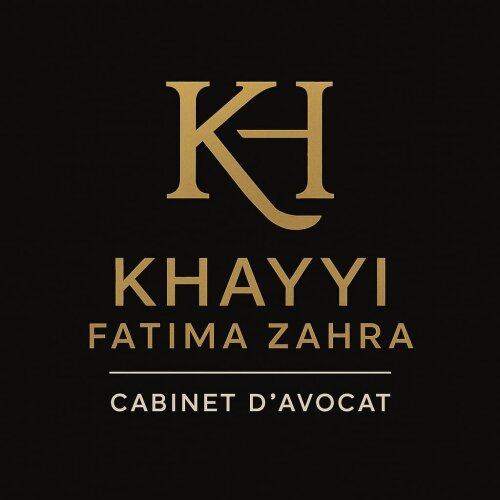Best Antitrust Litigation Lawyers in Rabat
Share your needs with us, get contacted by law firms.
Free. Takes 2 min.
List of the best lawyers in Rabat, Morocco
About Antitrust Litigation Law in Rabat, Morocco
Antitrust litigation law in Rabat, Morocco, focuses on preventing unfair competition, monopolistic practices, and abuses of dominance in commercial markets. Rooted in both national legislation and Morocco’s international commitments, antitrust laws promote a healthy competitive environment, benefiting businesses and consumers alike. The principal aim is to discourage anti-competitive agreements, cartel behaviors, and market manipulation that could harm economic welfare. Regulatory authorities in Rabat, such as the Competition Council, actively oversee and enforce these laws, making it important for businesses and individuals to understand their rights and responsibilities under Moroccan antitrust regulations.
Why You May Need a Lawyer
There are several situations in which seeking legal advice for antitrust litigation in Rabat becomes essential. Businesses engaging in mergers or acquisitions should ensure compliance with competition law. If your business is accused of anti-competitive behavior, such as price fixing or market sharing, professional legal counsel is crucial to defend your interests. Individuals or companies that believe they are victims of unlawful competition can benefit from legal guidance on how to seek remedies. Furthermore, lawyers can help clarify contractual terms to prevent inadvertent breaches of competition law and can represent clients before Moroccan courts or regulatory bodies if litigation or investigations arise.
Local Laws Overview
Antitrust regulation in Morocco is primarily governed by Law No. 104-12 on Freedom of Prices and Competition. This law sets out procedures for controlling restrictive practices, abuse of market dominance, and cartel activity. The Competition Council is the key regulatory body, authorized to investigate, sanction, and advise on matters relating to competition. Businesses with significant market power are subject to additional scrutiny to prevent abuse of dominance. Certain agreements, such as those relating to price fixing, market or customer sharing, and output restrictions, are generally prohibited unless they qualify for exemptions. Parties must also notify the Competition Council of specific mergers and acquisitions to ensure they do not harm market competitiveness.
Frequently Asked Questions
What is considered anti-competitive behavior under Moroccan law?
Anti-competitive behavior includes practices such as price fixing, bid rigging, market sharing, limiting production, and abusing a dominant market position to exclude competitors or exploit consumers.
Who enforces antitrust laws in Rabat, Morocco?
The primary enforcement authority is the Competition Council, which investigates complaints and imposes sanctions for violations of competition law.
Are all mergers and acquisitions subject to review?
Not all mergers must be notified. The law sets financial thresholds based on turnover and market share that trigger mandatory notification to the Competition Council for review.
What are the penalties for violating antitrust laws?
Penalties can include significant fines, orders to cease unlawful conduct, and, in some cases, the reversal of transactions. Reputational damage and civil actions for damages may also arise.
Can individuals bring private actions for antitrust violations?
Yes, individuals and companies harmed by anti-competitive conduct can initiate legal proceedings to claim damages or seek injunctive relief.
What steps does the Competition Council follow in an investigation?
Upon receiving a complaint, the Council undertakes a preliminary analysis, followed by a detailed investigation if warranted. Parties are given an opportunity to respond before any decision is made.
Are exemptions possible under Moroccan competition law?
Certain practices may be exempted if they contribute to economic progress, benefit consumers, or are indispensable to achieving efficiency, provided they do not eliminate competition.
How long does antitrust litigation usually take?
The duration varies based on complexity, but investigations and litigation can range from several months to over a year, depending on the scope and parties involved.
Does competition law apply to both private and public entities?
Yes, competition law applies to all economic entities in Morocco, including public enterprises and government-owned companies engaged in commercial activities.
Can I consult with an international lawyer for antitrust matters?
While local expertise is important due to the specificities of Moroccan law, international lawyers may be consulted, especially when dealing with multinational transactions or parallel proceedings abroad.
Additional Resources
For further assistance, consider the following resources related to antitrust litigation in Rabat:
- Competition Council (Conseil de la Concurrence): The primary regulator for competition matters in Morocco.
- Ministry of Economy and Finance: Provides guidance on market regulations and economic policy.
- Moroccan Bar Association: Can assist in finding qualified legal counsel specialized in competition law.
- Academic institutions in Rabat, such as Mohammed V University, offer legal research and public lectures on competition law topics.
Next Steps
If you believe you are involved in or affected by an antitrust issue in Rabat, Morocco, the following steps are recommended:
- Document any relevant communications, contracts, or business practices you suspect of violating competition law.
- Seek an initial consultation with a qualified local lawyer experienced in Moroccan antitrust litigation to discuss your situation.
- Contact the Competition Council for guidance or to submit a formal complaint if necessary.
- Follow legal advice closely to ensure compliance with all procedural requirements and deadlines.
- Continue to educate yourself about your rights and responsibilities under Moroccan competition law to avoid future disputes.
Taking timely and informed action can help protect your business interests and ensure fair competition in Rabat’s dynamic market environment.
Lawzana helps you find the best lawyers and law firms in Rabat through a curated and pre-screened list of qualified legal professionals. Our platform offers rankings and detailed profiles of attorneys and law firms, allowing you to compare based on practice areas, including Antitrust Litigation, experience, and client feedback.
Each profile includes a description of the firm's areas of practice, client reviews, team members and partners, year of establishment, spoken languages, office locations, contact information, social media presence, and any published articles or resources. Most firms on our platform speak English and are experienced in both local and international legal matters.
Get a quote from top-rated law firms in Rabat, Morocco — quickly, securely, and without unnecessary hassle.
Disclaimer:
The information provided on this page is for general informational purposes only and does not constitute legal advice. While we strive to ensure the accuracy and relevance of the content, legal information may change over time, and interpretations of the law can vary. You should always consult with a qualified legal professional for advice specific to your situation.
We disclaim all liability for actions taken or not taken based on the content of this page. If you believe any information is incorrect or outdated, please contact us, and we will review and update it where appropriate.











